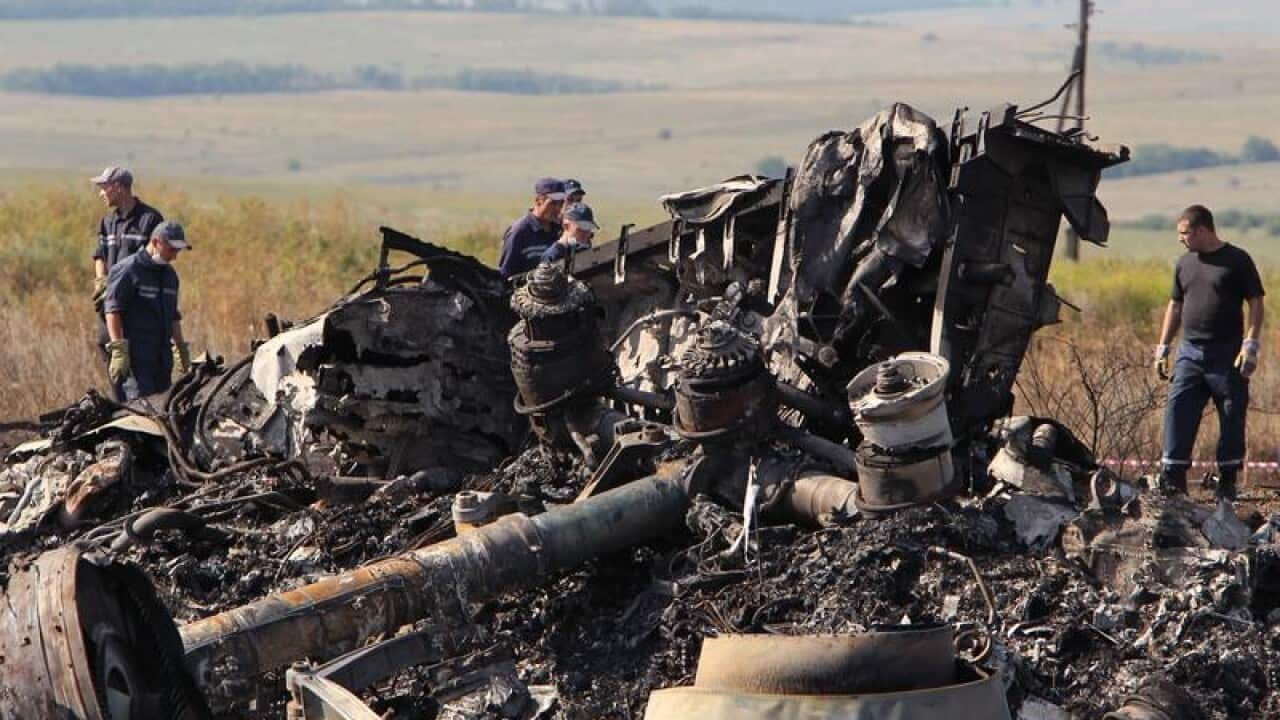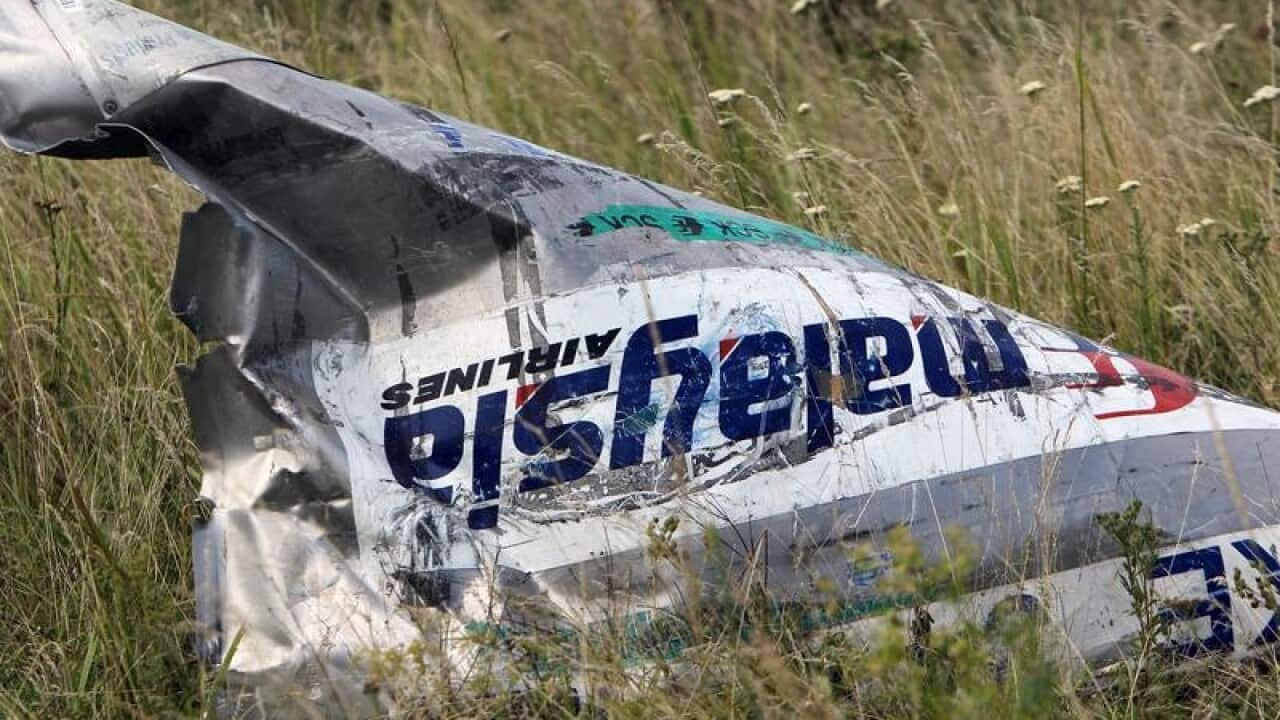International investigators have over the 2014 shooting down of flight MH17 above rebel-held eastern Ukraine in which 298 people were killed.
Here are the four suspects named by the Dutch-led team.
Igor Girkin
Igor Girkin - also known by his pseudonym "Strelkov" - is the most high-profile suspect.
The former Russian intelligence agent with fighting experience from Chechnya to Yugoslavia claims to kick started the war in East Ukraine as the commander of pro-Moscow fighters that captured key locations around the region. In 2014 Girkin ruled the then rebel stronghold of Slavyansk with an iron fist, with executions for petty theft reportedly carried out under his rule.
In 2014 Girkin ruled the then rebel stronghold of Slavyansk with an iron fist, with executions for petty theft reportedly carried out under his rule.

Fred Westerbeke of the Joint Investigation Team discussing the ongoing investigation of the Malaysia Airlines MH17 crash in 2014. Source: AAP
But he was squeezed out of the separatist leadership later that year under mysterious conditions and returned to Russia, where he lost all influence and reportedly had financial difficulties.
On Wednesday, the historical re-enactment fan denied pro-Russian separatists were behind the missile attack.
"I can only say that rebels did not shoot down the Boeing," he told the Interfax news agency.
Sergei Dubinsky
Sergei Dubinsky, nicknamed "Khmury", reportedly met Girkin when he fought in the First Chechen War in the mid-1990s. He is also a veteran of the 1980s Soviet war in Afghanistan.
At the time of the downing of the plane, Dubinsky was allegedly serving as the military intelligence chief of the separatists in eastern Ukraine.
He has also been linked to Russia's GRU intelligence service.  According to the independent Bellingcat website, Dubinsky had "requested the delivery of a battle-ready BUK missile launcher" -- the type of missile investigators said downed the plane.
According to the independent Bellingcat website, Dubinsky had "requested the delivery of a battle-ready BUK missile launcher" -- the type of missile investigators said downed the plane.

Debris of the Boeing 777, Malaysia Arilines flight MH17. Source: AAP
The website also said Dubinky was "involved in the removal of the BUK back to Russia after the downing of MH17."
He reportedly resides in Rostov-on-Don, his native city in southern Russia near the border with Ukraine.
Oleg Pulatov
Nicknamed "Gyurza", after a viper snake, Oleg Pulatov is a former Russian army officer.
In the summer of 2014 he was one of Dubinsky's deputies at the heart of the separatist military leadership.
He allegedly helped transport the BUK system to Ukraine and, after the downing of the plane, helped ensure the safety of the area where the MH17 debris fell.
Leonid Kharchenko
Ukrainian citizen Leonid Kharchenko, nicknamed "Krot", was also linked to the separatist leadership when the plane was downed.
According to Bellingcat, he was involved in "securing the BUK missile launcher near the launch site." The website also reported that Kharchenko could have coordinated the transport of the missile launcher from the main city in separatist eastern Ukraine, Donetsk.
According to Ukrainian media, Kharchenko is wanted by Kiev for the siege of government buildings and his role in helping the rebels.
In an interview published in 2015 by a separatist news agency, he called authorities in Kiev a "fascist regime" that is built on a "Nazi" ideology.
Ukrainian security services told AFP Wednesday that they had "no information" on Kharchenko's whereabouts or whether he was still alive.
What are the suspects accused of?
Each suspect faces two criminal charges: firstly "crashing flight MH17, resulting in the death of all passengers,"; and secondly "the murder of the 298 occupants of flight MH17".
Investigators admitted the three Russians and one Ukrainian charged had "not pushed the button themselves" on the BUK missile that brought down the Malaysia Airlines plane five years ago.
But Dutch prosecutor Fred Westerbeke told a press conference it was enough that the four had "closely cooperated to obtain the BUK and put it in position on the launch site with the goal to shoot a plane."
He added: "In Dutch criminal law, persons who are not present themselves during the implementation of a crime but play an important organising role are just as punishable as the persons who actually committed the crime."
Why were there no other charges?
Ahead of Wednesday's announcement, expectations ran high that Russian top brass would be among those charged, based on a statement by a Ukrainian minister and reports in Dutch media.
Instead, all four suspects turned out to be senior figures in the separatist Donetsk People's Republic in eastern Ukraine, rather than the Russian military itself.
Dutch police chief Wilbert Paulissen said Wednesday the "investigation towards prosecution of other suspects will proceed".
Investigators were hunting the crew that operated the BUK missile system, believed to be about four people, "and people who formed the link in the Russian chain of command."
Prosecutor Westerbeke said they simply did not have enough evidence yet to secure criminal convictions of other suspects.
"We want to go as far as we can get," he said, appealing for more witnesses.
Will the suspects ever appear in court?
Investigators admitted it was unlikely the suspects would appear in the dock in the Netherlands.
The Russian and Ukrainian constitutions forbid extradition of their nationals to any other country, Westerbeke said.
"I am a realist, meaning that I don't think the odds are now on our side", he said, adding Russia had so far refused to cooperate.
"That is a slap in the face to the bereaved, and I call out to them (Russia) to start cooperating," he added.
Under Dutch law, however, the men can be tried in their absence, meaning "the criminal trial will take place even when the suspects choose not to be present."
The trial is due to start on 9 March at a high-security court in Schiphol - close to the airport where the doomed flight took off.











